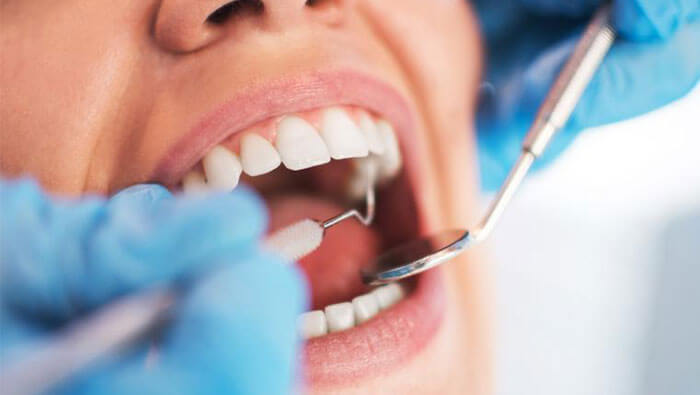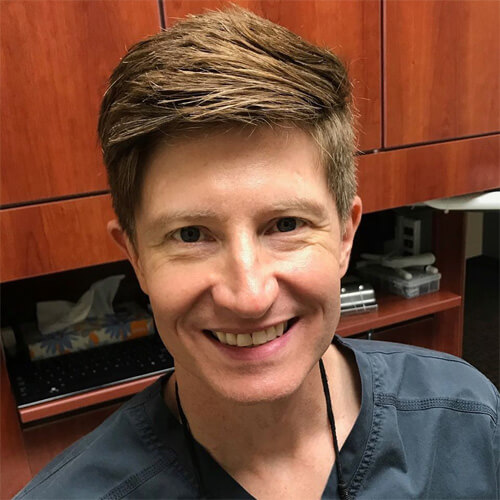Biofilm is quite literally a “film” or layer of biological matter that forms on teeth, in sink pipes, on river rocks, and more. Biofilm is made of many different things. Think of it as concrete, which contains cement as well as a slew of other materials. It’s likely you’ve been aware of biofilm on your teeth when they feel slimy or fuzzy instead of smooth and clean. Edmonds dentist, Dr. Kitts, explains more below about biofilm and the role it plays in your oral wellness.
Key Takeaways
- Biofilm is a slimy layer of microorganisms that forms on teeth, pipes, rocks, and more.
- Biofilm can cause tooth decay, gum disease, cavities, tooth loss, and other health issues.
- Regular brushing, flossing, and professional dental cleanings are essential to prevent biofilm buildup.
- Biofilm can also grow on oral appliances, and special treatments may be needed to remove it.
- Prevention is the best medicine, and consulting a dental professional is recommended for ongoing oral health care.

My teeth aren’t cold, why do they need sweaters?
It’s true; the texture of biofilm can feel like fuzzy little sweaters on your teeth. Biofilm occurs when bacteria stick to a wet environment, creating a slimy layer of microorganisms and random debris. Biofilm is a diverse and highly organized group of biological matter all webbed together. Some of the microorganisms are neutral but some are pathogenic and cause a lot of problems for your oral and overall health.
This slimy layer includes multiple kinds of bacteria, fungi, and anything else that gets stuck in the stickiness such as plaque or leftover food particles. Usually, bacteria start off floating around on their own, but if they stick to a wet surface they can cause a microcolony and produce a lot of gunk. This can happen on your teeth as easily as down a water pipe.
The effects of Biofilm
It’s proven that not all microorganisms in biofilm cause harm to your oral health. But the ones that do can cause inflammation and deterioration in the bones and tissues of your mouth and have a direct pathway through the gums and into the bloodstream.
Biofilm in your mouth can cause:
- Tooth decay
- Gum disease
- Cavities
- Tooth loss
Dental plaque is a dangerous kind of biofilm. Without properly cleaning your teeth (brushing and flossing every day), the material can corrode your teeth and the bacteria can make you sick.
Gingivitis is a common and mild irritation of the gums. But even 30-40% of the population will have a severe gum disease called periodontitis. A dentist can help you look for signs of gum disease or diagnose it.
Biofilm that travels through the bloodstream to other parts of your body cause:
- Ear infections
- Heart disease
- Stroke
- Diabetes
- Alzheimer’s
- Cystic fibrosis (lung infection)
- Legionnaire’s Disease
Treating Biofilm & tooth decay
The formation of biofilm actually protects the bacteria in it by keeping it attached to teeth and other debris. This makes the bacteria hard to clear and kill. Regular brushing and flossing are essential for your oral health to prevent bacteria and other microorganisms from building up on your teeth.
However, some buildup of plaque and tartar is common and can only be treated by a dental professional. This is why getting your teeth cleaned at the dentist twice a year is so important. Biofilm can also grow on oral appliances. So, if you use dentures, a mouthguard, or a removable bridge, ask your dentist how to best keep the appliance clean.
If biofilm causes excessive tartar buildup, your dentist may recommend special treatment to remove it and kill the bacteria such as prescription mouthwash or more advanced periodontal treatments. Unfortunately, oral infections are chronic because the bacteria can’t be completely killed by antibiotics. Oral infections must be inspected and treated on an ongoing basis. As always—prevention is the best medicine.
If you’re looking for a dental professional to keep your mouth and overall health in tip-top shape, Soundview Family Dental is accepting new patients. Contact us to make an appointment today!
The content on this blog is not intended to be a substitute for professional medical advice, diagnosis, or treatment. Always seek the advice of qualified health providers with questions you may have regarding medical conditions.
Sources:


